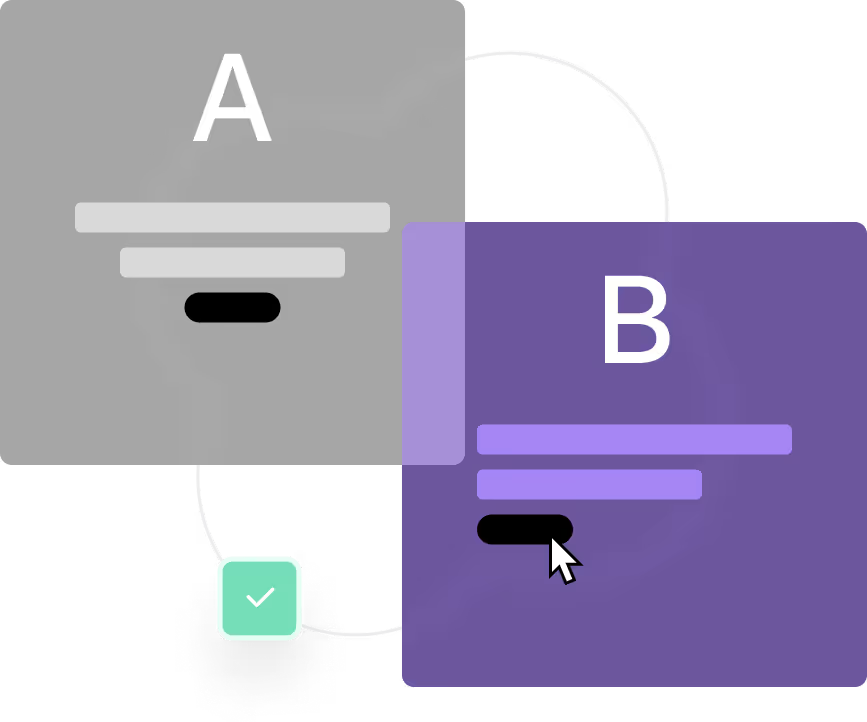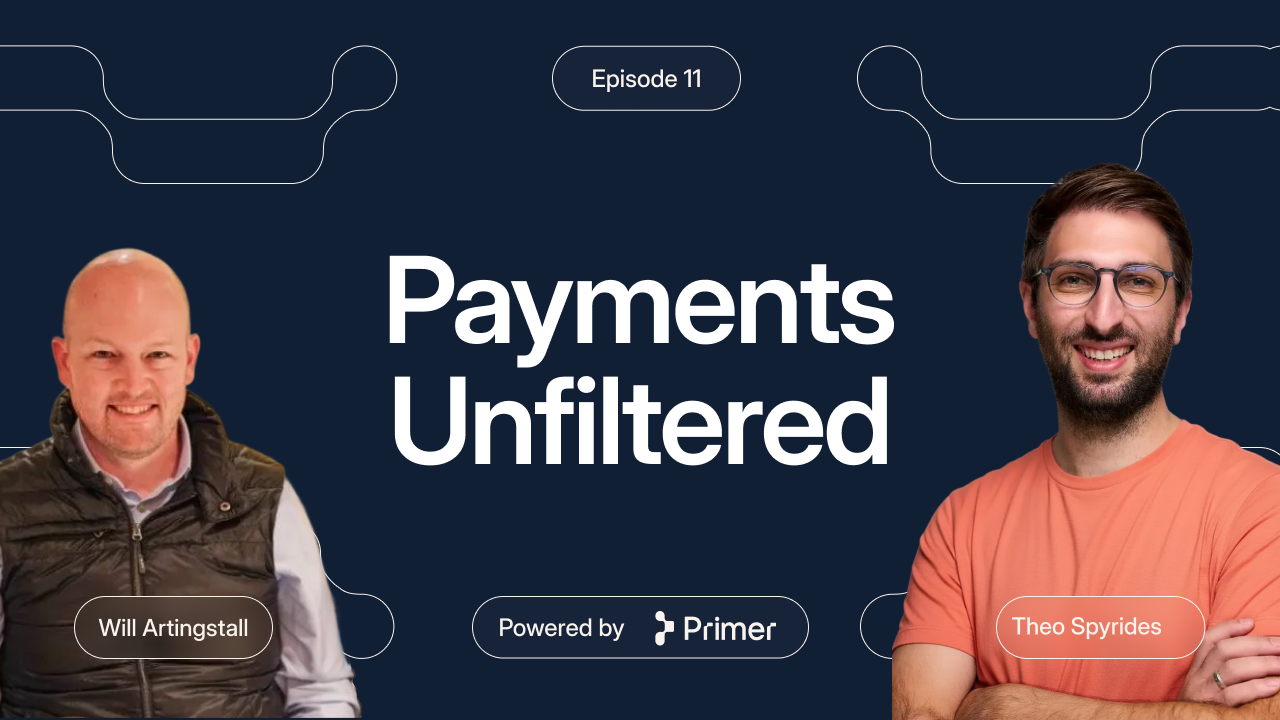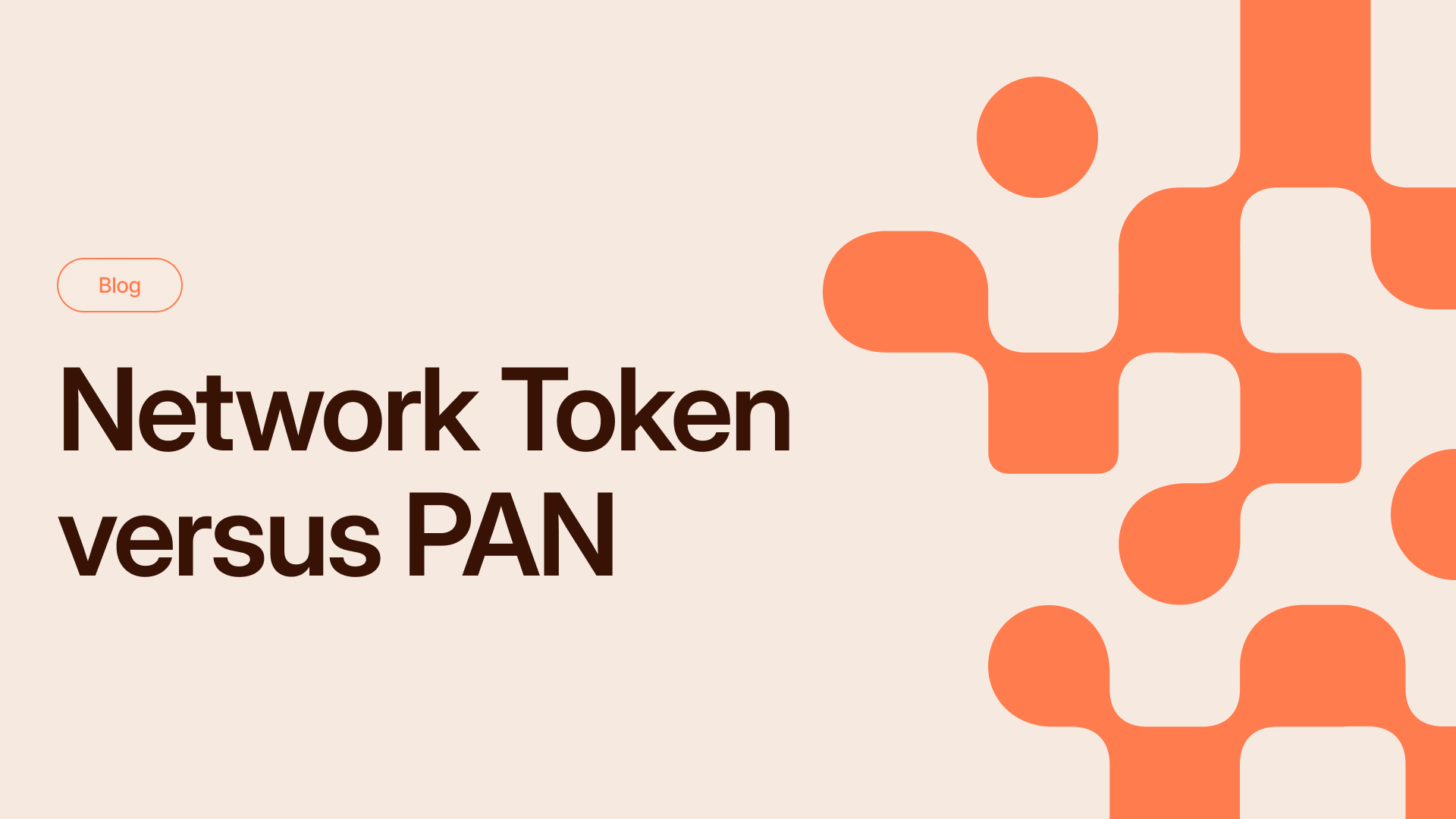Network tokens are revolutionizing how businesses handle payment processing in the rapidly evolving digital economy, setting a new standard for secure, efficient, and customer-friendly payments.
Major card networks like Visa, Mastercard, and American Express issue network tokens to replace the traditional Primary Account Number (PAN) with a unique, secure identifier for each customer and merchant pairing. Using these tokens, merchants can enhance authorization rates, reduce fraud, and elevate the overall customer experience.
If you're reading this article, you're likely exploring how to use network tokenization to increase authorization rates, decrease fraud rates, and offer a better user experience to your customers.
But you may have a few questions: How does network tokenization work? What are the benefits, and are they really worth it? How can you implement them effectively?
In this article, we'll answer these questions and explain how Primer can help you optimize your payment process with network tokenization:
- How do network tokens differ from other forms of tokenization?
- What are the benefits of network tokenization?
- The Primer approach to network tokenization
- Three reasons to use Primer for your network tokenization
Already sold on network tokens and just need a payment infrastructure platform to help you implement them? Contact our payment experts
How do network tokens differ from other forms of tokenization?
The payments ecosystem today utilizes various types of tokens, including acquirer tokens, issuer tokens, payment tokens, and merchant tokens.
As their names indicate, these tokens are generated by different parties within the payment chain, and each serves a distinct purpose. For instance, issuer tokens allow customers to use their cards seamlessly with mobile wallets like Apple Pay or Google Pay.
In contrast, network tokens replace sensitive card information—the PAN—with a randomized alphanumeric string. This enhances security and significantly reduces the risk of fraud.
What’s the difference between network tokenization and PCI tokenization?
PCI Tokenization involves a payment provider replacing a customer’s card details with a randomly generated string of characters, known as a token. When a customer purchases something online, the merchant’s website processes and stores only the token, not the actual Primary Account Number (PAN). This approach significantly reduces the risk of card data breaches and enhances overall payment security by minimizing the exposure of sensitive debit or credit card data.
Network Tokenization, managed by major card networks like Visa, Mastercard, and American Express, operates differently. Unlike PCI tokens, network tokens are directly linked to a customer’s account rather than just the card number. This connection allows the network token to automatically update if the customer’s card is ever replaced or updated, ensuring continuous and seamless payment processing without requiring ecommerce merchants to re-tokenize the information.
For example, suppose a customer receives a new card due to expiration or loss. In that case, the network token adjusts to reflect the new card details without disrupting the customer’s ability to transact.
Network tokenization offers significant advantages for businesses that rely on recurring payments, such as subscription services. It ensures that transactions continue seamlessly even when a customer’s card details change—something PCI tokenization doesn’t inherently provide.

What are the benefits of network tokenization?
Network tokenization offers a range of benefits that enhance payment security, increase revenue, and improve the overall customer experience. Here are the key advantages that network tokens provide to both merchants and their customers:
Reduced fraud
Using network tokenization is a more secure way to process online payments and reduces the risk of fraud because:
- Network tokens replace raw card details with unique, randomized alphanumeric strings, meaning merchants don’t need to handle or store Primary Account Numbers (PANs). This significantly lowers the risk of data breaches and unauthorized access.
- Each token is linked to a specific customer and merchant combination. This specificity ensures that even if a token is intercepted, it cannot be used across different merchants, preventing widespread fraudulent activities.
Research from Visa has found that network tokens can reduce fraud by up to 30%.
Higher authorization rates
Merchants using network tokens to process transactions can expect higher authorization and approval rates. Research from Visa indicates that businesses using its tokens see an average 4% increase in authorization rates for card-not-present transactions. This uplift is primarily due to issuing bankshaving greater confidence in a transaction’s authenticity, thanks to the robust fraud prevention features.
Improved user experiences
For businesses that rely on recurring (or card-on-file) payments, such as subscription services, network tokenization ensures that transactions continue smoothly even if a customer’s credit or debit card details change. The tokens automatically update with new payment card information, preventing missed payments and reducing customer churn.
Lower interchange fees
The card schemes offer merchants lower interchange fees for transactions made with these tokens. These cost reductions are partly intended to encourage merchant adoption but also reflect the lower risks of processing payments using network tokens.
What type of businesses should use network tokens?
While every online business can benefit from network tokens, those that offer subscription services find particular value in using them.
Subscription-based businesses rely on recurring payments, and when a customer’s card expires, it can lead to failed transactions and lost revenue. Network tokens address this issue by dynamically updating card information, reducing the likelihood of payment failures, and helping to decrease involuntary churn. Businesses can maintain steady revenue streams and enhance customer satisfaction by ensuring seamless payment continuity.
The Primer approach to network tokenization
Primer is a centralized Technical Service Provider (TSP) that makes it easy for merchants to adopt and use network tokens without requiring extensive engineering work. Instead of managing the complexities of generating, handling, and applying network tokens, Primer seamlessly handles these processes in the background.


Here’s how it works:
- Automatic token provisioning: Primer automatically provisions a network token during vaulting events after a customer's first payment.
- Consistent token usage: Whether it’s a Customer-Initiated Transaction (CIT) or a Merchant-Initiated Transaction (MIT), Primer ensures that network tokens are used for all subsequent transactions, reducing the risk of payment failures due to card expirations or changes.
- Seamless token management: Primer automatically updates and manages network tokens across all supported processors, guaranteeing smooth payment processing without merchant intervention.
Network tokens are securely stored in Primer’s agnostic Token Vault. This vault’s agnostic nature means that tokens are not linked to any specific payment processor, allowing merchants to collaborate with their preferred providers without limitations.
For instance, if a merchant switches from one PSP to another, customers can continue to use their stored cards seamlessly. Similarly, suppose a PSP encounters downtime or certain card types or regions experience payment rejections. In that case, Primer enables quick transaction retries using tokens with alternative processors, ensuring uninterrupted service for merchants and their customers.
Discover more about how Primer allows merchants to utilize network tokens in our docs.
Three reasons to use Primer
Managing network tokenization manually is a big challenge because merchants need to be PCI-compliant to store the tokens. While using multiple PSPs for tokenization gets complicated as there is no centralized management.
With Primer, neither of these issues exist. Our vault is PCI-DSS level-1 certified, meaning we carry the merchant's PCI burden. Primer also centralized token management and payment operations in one place, removing the complexity of managing this with multiple PSPs.
But network tokens are just one of the tools that Primer offers to automate and optimize the entire payment flow, helping merchants reduce costs, improve customer experience, and unlock their payment potential.
Here are three reasons to use Primer:
1. Implement intelligent payment routing without engineering resources (with our no-code Workflow builder)
Merchants considering network tokenization to improve their payment strategy may also consider implementing payment routing.
However, setting up a simple multi-processor payment routing strategy takes a lot of work. Implementing new payment service providers can consume significant engineering time. Building even a simple payment routing solution is fraught with complexity and is akin to creating a whole new product line for the business. Due to this complexity, many businesses settle for working with a single processor or struggle with a poorly optimized multi-processor setup.
Fortunately, a payment infrastructure platform like Primer simplifies building intelligent payment routing. Once you’ve integrated with our payment API, you can connect with the payment processors you want to use globally with just a few clicks.
Once connected with the processors, Primer's drag-and-drop workflows make creating powerful payment routing logic easy. It allows merchants to execute their payment strategy by routing payments to processors with the highest acceptance rates in particular markets, blocking certain card types or payments from specific locations, and choosing when to use 3DS authentication.
With Primer, merchants can choose from hundreds of different conditions, so you can quickly set up payment flows and adjust them as their priorities change.
2. Reduce the risk of fraud with our no-code payment routing
Merchants exploring network tokens are typically looking to strengthen their fraud prevention strategy. It’s easy to see why: global merchants will face over $362 billion in losses due to payment fraud from 2023 to 2028.
In addition to offering network tokenization functionality, Primer Workflows give merchants tools to prevent fraud. These include setting a rule to automatically decline payments from a particular market, issuer, or individual cardholder.
For example, a merchant might block transactions of a certain amount (say $25) on pre-paid cards from countries identified as fraud risks. Merchants can do this without any code, allowing them to move quickly and reducing reliance on developer resources.
Take a look at some of the other tools we offer natively to help merchants reduce fraud.
3. Measure the impact of a payment strategy with our Observability Dashboard
To see the impact of network tokens, merchants need to be able to easily track their payment data in one place without having to log into and track multiple dashboards.
Primer’s Observability Dashboard consolidates all processor and payment methods into one place, empowering merchants to quickly debug issues, track authorization rates, and get the insights needed to optimize payment routing. It also gives the ability to go granular, allowing merchants to slice and dice payment data by processor, region, or payment method to identify trends and resolve issues before they impact customers.

For example, if authorization rates through a particular gateway suddenly drop, Primer’s dashboard will immediately highlight the problem.
Instead of waiting for complaints, merchants can see in real time which gateway is underperforming and take action—such as rerouting payments through another processor—without affecting the customer experience. Merchants can even receive alerts via Slack or email, keeping them ahead of potential issues.
Network tokenization: A no-brainer for payments
Network tokens not only protect the payments ecosystem from fraudsters. They also improve the overall payment experience. Throughout the card lifecycle, customer details are safe and secure, whether cards have expired, are lost, or stolen, so it's no wonder why this feature is among the hot topics right now in payments—it's a no-brainer.
Primer makes it simple to implement network tokenization, enabling merchants to optimize their payment flow, reduce fraud, and keep sensitive data secure, all with minimal effort.
Book a call with our payment experts to learn how network tokenization can improve the payment process.
Network tokenization FAQs
What is network tokenization and how is it different from PCI tokenization?
Network tokenization replaces a customer’s card number (PAN) with a secure, unique identifier managed by card networks like Visa or Mastercard. Unlike PCI tokenization, which is typically managed by payment providers and doesn’t update automatically, network tokens are dynamic. They stay current even if a customer’s card details change, making them ideal for recurring payments and reducing payment disruptions.
What are the key benefits of using network tokens?
Network tokenization offers several advantages:
- Reduces fraud by replacing sensitive data with secure tokens
- Increases authorization rates due to enhanced issuer trust
- Improves user experience, especially for recurring billing
- Lowers interchange fees, as tokens are seen as lower risk by card networks
Visa data suggests up to a 30% fraud reduction and a 4% authorization rate increase for card-not-present transactions.
Who should use network tokenization?
While all online businesses can benefit, network tokenization is especially valuable for subscription services and businesses with recurring billing. These companies often face issues from expired or updated cards, which network tokens automatically handle, reducing churn and ensuring consistent revenue.
How does Primer simplify network tokenization?
Primer handles all the complexity behind the scenes. It:
- Automatically provisions and updates tokens across supported processors
- Stores tokens in a secure, agnostic vault
- Ensures consistent token use for all transactions
- Enables retry mechanisms across processors without reauthentication
This means merchants can implement network tokenization without heavy engineering work or processor lock-in.
How can businesses track the performance of network tokens?
Using Primer’s Observability Dashboard, businesses can monitor token performance, authorization rates, and fraud trends across all payment methods and processors. This helps merchants spot issues early, adjust their routing strategies, and optimize payments without needing multiple logins or manual analysis.
Sources:
https://visa-commercial-solutions.visa.com/knowledge-hub/tokenization-a-deep-dive
https://www.pymnts.com/apple/2023/apple-payment-services-restored-after-short-outage/




.png)
